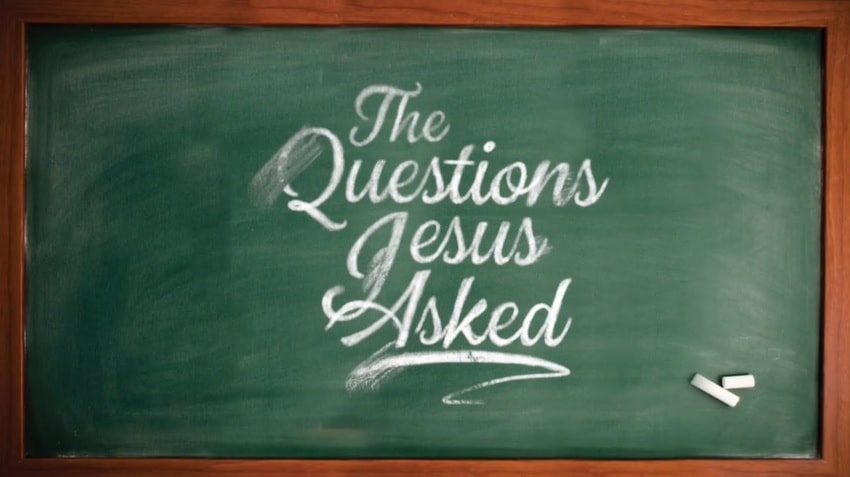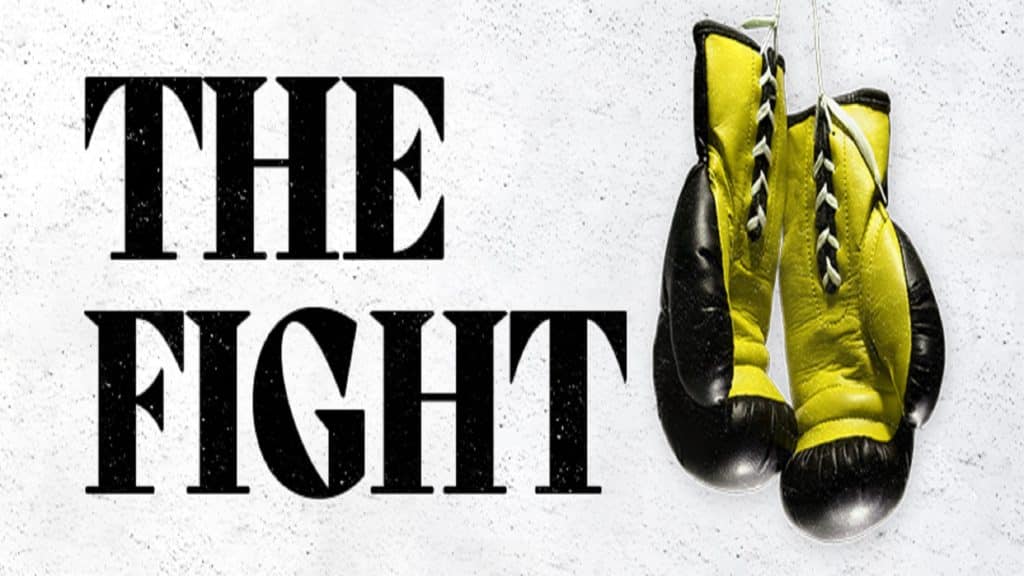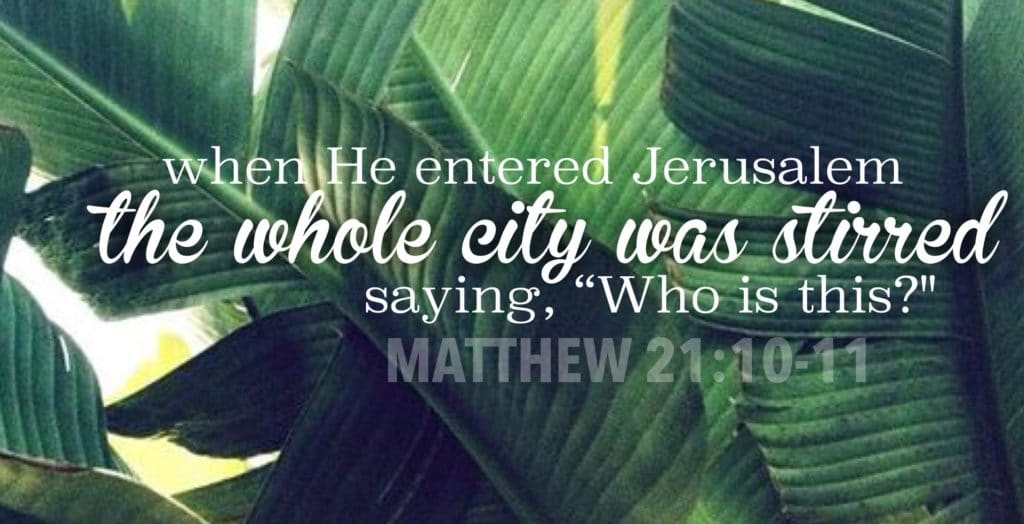The Questions Jesus Asked Part 9

This week in our Questions Jesus Asked series we are looking at the question in Luke Chapter 24, “What are you discussing together as you walk along?”
Luke 24:13-21 (NIV)
13 Now that same day two of them were going to a village called Emmaus, about seven miles from Jerusalem. 14 They were talking with each other about everything that had happened. 15 As they talked and discussed these things with each other, Jesus himself came up and walked along with them; 16 but they were kept from recognizing him. 17 He asked them, “What are you discussing together as you walk along?” They stood still, their faces downcast. 18 One of them, named Cleopas, asked him, “Are you only a visitor to Jerusalem and do not know the things that have happened there in these days?” 19 “What things?” he asked. “About Jesus of Nazareth,” they replied. “He was a prophet, powerful in word and deed before God and all the people. 20 The chief priests and our rulers handed him over to be sentenced to death, and they crucified him; 21 but we had hoped that he was the one who was going to redeem Israel. And what is more, it is the third day since all this took place.
Jesus asks this question of two disciples, one of them is named Cleopas, and the other one is not named. I believe that the two disciples are actually Cleopas and his wife (I will connect the big reason I believe this at the end of the message this weekend). As disciples of Jesus, they came to Jerusalem on this weekend thinking that this was going to be the time that Jesus finally stepped up and took His rightful throne, redeemed Israel, pushed down the Roman oppression and made the world right again. That was their understanding of what the Messiah was going to do, and they knew that Jesus was their Messiah.
But what happened instead while they were in Jerusalem is that Jesus was arrested. He was beaten. He was tortured. He was crucified. Then He was taken down from the cross, buried and the stone was rolled over the tomb. All of their hopes, all of their expectations, all of their thoughts about who Jesus was were gone. They waited in Jerusalem for a couple of days, and on the third day, they decided to go home. They are walking away from their hope.
Luke 24:20-21 (NIV)
20 The chief priests and our rulers handed him over to be sentenced to death, and they crucified him; 21 but we had hoped that he was the one who was going to redeem Israel.
Their understanding of Messiah couldn’t grasp that the crucifixion is what had to happen. Jesus came to take the pain and suffering of the world and deal with it. Jesus has come to the lowest point, death itself and defeated it and set us free. And, He is coming back again soon, which we talked about last week.
There is a lot happening in this passage, and this weekend at church as we dig into Luke Chapter 24 we will also be talking about the seven feasts of Israel.
Read the following passage from Leviticus 23 to get ready for the weekend. Be sure to join us in person or online.
Leviticus 23:4-16 (NIV)
4 “‘These are the LORD’s appointed feasts, the sacred assemblies you are to proclaim at their appointed times: 5 The LORD’s Passover begins at twilight on the fourteenth day of the first month. 6 On the fifteenth day of that month the LORD’s Feast of Unleavened Bread begins; for seven days you must eat bread made without yeast. 7 On the first day hold a sacred assembly and do no regular work. 8 For seven days present an offering made to the LORD by fire. And on the seventh day hold a sacred assembly and do no regular work.'” 9 The LORD said to Moses, 10 “Speak to the Israelites and say to them: ‘When you enter the land I am going to give you and you reap its harvest, bring to the priest a sheaf of the first grain you harvest. 11 He is to wave the sheaf before the LORD so it will be accepted on your behalf; the priest is to wave it on the day after the Sabbath. 12 On the day you wave the sheaf, you must sacrifice as a burnt offering to the LORD a lamb a year old without defect, 13 together with its grain offering of two-tenths of an ephah of fine flour mixed with oil–an offering made to the LORD by fire, a pleasing aroma–and its drink offering of a quarter of a hin of wine. 14 You must not eat any bread, or roasted or new grain, until the very day you bring this offering to your God. This is to be a lasting ordinance for the generations to come, wherever you live. 15 “‘From the day after the Sabbath, the day you brought the sheaf of the wave offering, count off seven full weeks. 16 Count off fifty days up to the day after the seventh Sabbath, and then present an offering of new grain to the LORD.
Steve Lawes is a church encourager and the lead pastor of Keys Vineyard Church.


